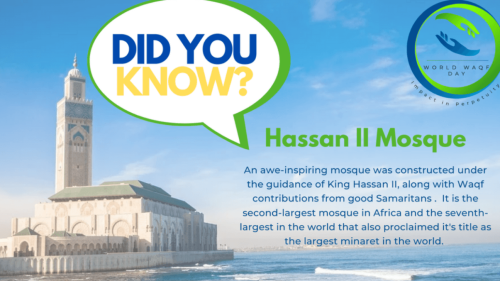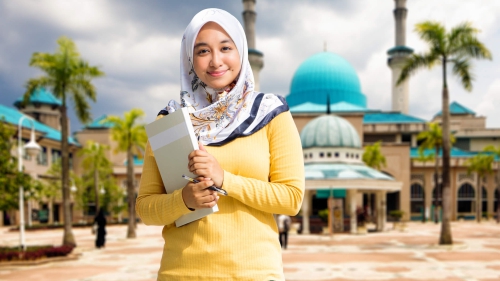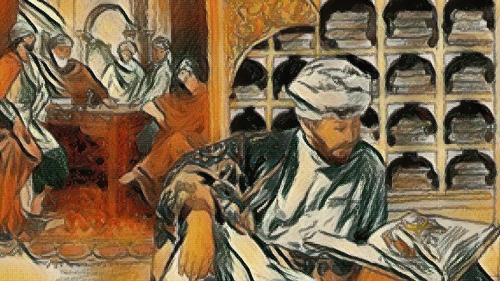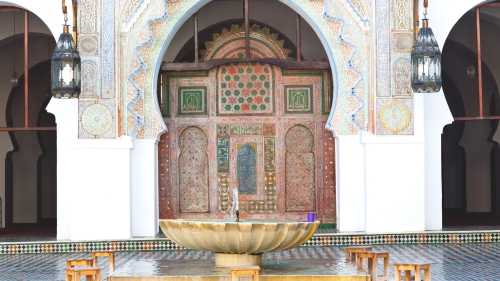Continuous Education Process Essential for Holistic Well-Being

We are currently living in an increasingly challenging environment, attributed to various social, psychological, technological, and economic changes. We have to deal with too much information and are exposed to many choices in life, causing some of us to experience negative consequences that, in turn, shape our attitudes and feelings which have considerable bearing on our behaviors.
While abundant and fast-moving information keeps us updated, having too much of it would lead to disruption in individual and societal well-being. As behavioral scientists and religious scholars in educational institutions, we have great roles to play in educating society, equipping them with relevant knowledge, skills, abilities, and desired values. We have essential roles to play in enabling our community to attain a quality life, minimize the negative consequences of disruptive scenarios, as well as empowering them to have good co-existence with others, for their short-term and long-term well-being.
With the dynamic changes of information communication technology, cosmopolitan places, modern lifestyle, emergence of new knowledge, and learning preferences, there are needs to revisit the way education is managed or provided for our community. Essentially, it is worthy to assess the extent to which we understand that education is a continuous activity which entails a constant learning process. Education is a process of change due to our interaction with others, our surroundings, and experiences.
In developing a sound education system, several questions are pertinent arise. To what extent does the interaction with new information, knowledge sources, and the environment contribute to the education process or disrupt the aim of educational goals?
To what extent is our education focusing on the process of nurturing good moral values instead of only on knowledge and skills? To what extent is our outcome-based education operating in holistic manner? How does the education process nurture beyond-high employability of students but holistic individuals who uphold, practice, and radiate positive values? To what extent do we guide our students to be ready for life after the world, instead of only for the world of work (the need to prepare students to have high akhiratability, a term which could be referred to an individual’s awareness of the need to prepare oneself to be ready for life in this world and the hereafter).
It is imperative to note that education is a pillar in the development of society and the country. It should be treated as a primary agenda in developing a civilized society. Education is an important mission that is and should be guided by several core principles.
Firstly, education is a continuous effort to develop the potential of individuals and citizens. The role of educating society is not only borne by certain institutions, but all parties should play roles in educating the nation, especially in the effort to produce skilled, ethical, responsible, and capable members of the community. The continuous process should involve various parties, without limiting it only to schools, universities and colleges but all agencies and parties that have direct and indirect interactions with the community. This includes communication media, social media, non-governmental organizations, and community members. All parties must play roles and join forces with the formal education institutions in the process of educating citizens. The authority in charge of education should not only lead and manage education institutions but the whole ecosystem that involves the process that causes or enables society to learn.
Secondly, education should aim to equip students with various and emerging fields of knowledge, skills, and abilities. Our society needs people who possess sound competencies, master basic and up-to-date knowledge, and can combine various fields of knowledge or relate them to current and local needs. This is important for them to understand the demands of life, solve problems, innovate new systems or products, and drive or speed up the development of the country. Local wisdom or indigenous knowledge must be taken up and integrated with the latest knowledge to produce solutions and interventions to change and improve the quality of life among the community. All parties should be engaged to play a role in equipping the society with knowledge, skills, and positive values, in line with the aspiration to avail a continuous process of education.
Thirdly, education must nurture values-based competent individuals. Values are principles held by an individual, guiding him or her to rightfully choose and evaluate something before taking any actions. Education process should equip individuals with knowledge and information that enable them to uphold the desired values. Our society needs to be nurtured to have noble characters, positive qualities, and good principles that enable them to achieve desired goals and well-being. These are essential in creating a balanced and harmonious society, intellectually, spiritually, emotionally, and physically.
Finally, education must prepare citizens to become a civilized society and a competent workforce in the society who are highly ready to contribute to the harmony and prosperity of their family, society, and country. To achieve the aspiration of becoming a civilized society, education should be able to nurture the society to have the following characteristics:
Modern and up-to-date, by using science and technology to achieve prosperity and well-being.
- Cultured, by having behaviors that reflect values-based characteristics, substantiated by the belief in God and cultural traditions.
- Highly civilized, by driving the country to have sustainable civilization and at the same time enhancing the efforts to make the country a progressive society.
- Freedom in managing the country, by being able to independently shape the direction of the country; benefiting from internal political stability, sound economy, competent workforce, as well as enjoying productive engagement with other foreign countries; and the active involvement of various parties that support the country's efforts.
- A healthy social system, supported by community members who firmly adhere to moral principles and values that guarantee unity, individual well-being, and community stability.
In conclusion, we need to design good strategies to strengthen our education system, which should involve the effort to enhance awareness among various parties about their responsibilities in being involved in the education process. We should establish good engagement with relevant parties, i.e., policy makers, education authorities, and researchers, to judiciously respond to the advanced changes of society and in turn provide a holistic process of education. We need to partner with external agencies to educate the community to deal with challenging psycho-socio-spiritual issues and formulate interventions to change, improve, and develop the community by applying human science and Islamic revealed knowledge or principles.
Dr. Shukran Abd Rahman is professor of Industrial and Organisational Psychology at AbdulHamid AbuSulayman Kulliyyah of Islamic Revealed Knowledge and Human Sciences, International Islamic University Malaysia (IIUM).
Topics: Higher Education, Social Change Values: Education, Knowledge
Views: 733
Related Suggestions
















